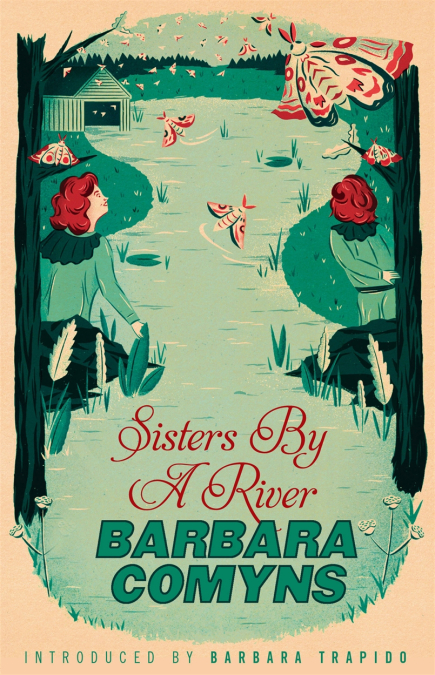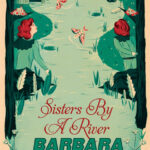by Barbara Comyns
Virago,1947/2013

Book clubs are always a great way to get yourself out of a genre-rut. I’m part of an online book club which recently chose to read Sisters by a River, so I thought I’d give it a go, as it is often cited as a modern classic.
It’s a partial memoir, published in 1947, of a wealthy family’s dysfunctional family life. Five sisters negotiate a childhood peppered with eccentric (read: troubled) adults and traumatic events, as told by the author in a matter-of-fact, childlike style, complete with spelling errors. The prose is divided into a series of short, pithy chapters, each of which add another thread to the reader’s understanding of the characters, their relationships, and the environment the sisters grew up in. The chapters appear almost to be standing alone, but gradually the reader’s understanding of the family events and the relationships between the characters crystallises as you progress through the book.
Initially, I found the spelling errors jarred a little, and the pragmatic retelling of events does not hide the horror of the dysfunction. It took me a while to adjust to that style, but as I persevered, I found myself somehow bewitched. Pictures of the characters starts to emerge, and there is a certain warmness to the environment, being pierced through with dark memories that the child narrator does not attempt to temper or explain. The style actually proved itself to be a powerful tool in the book, rather than an irritation, adding an immediacy to the child’s-eye-view and being dramatically mismatched with the traumas being described.
Overall, I enjoyed the book, although I wouldn’t describe it as an easy read. It was an interesting journey. It feels both warm and dark simultaneously, and the reader experiences the same confusion as the child herself must have felt.





